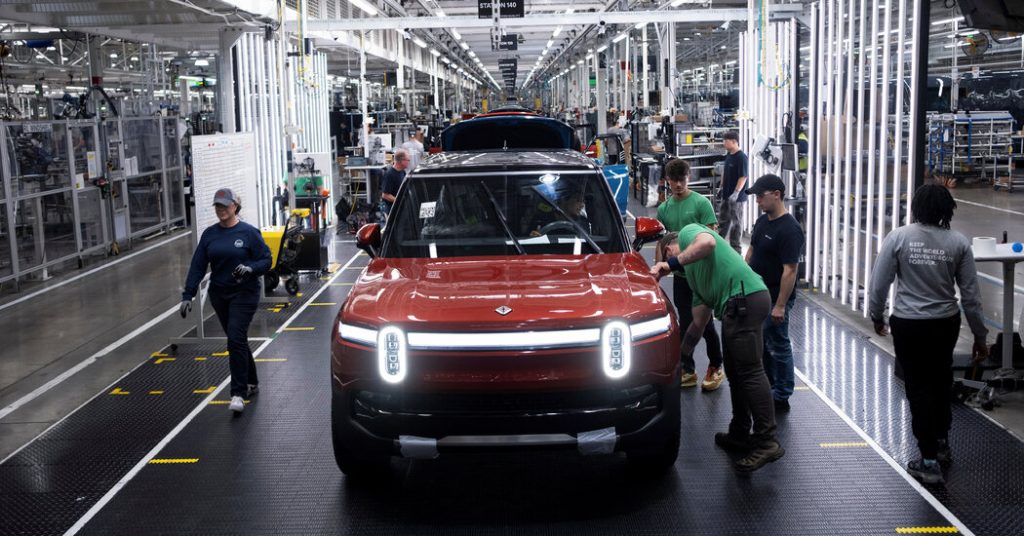A Strategic Alliance: Volkswagen’s Investment in Rivian and the Electric Vehicle Market Evolution
The recent announcement of Volkswagen’s substantial investment in Rivian, an emerging star in the electric truck segment, marks a significant turn in the automotive industry’s journey towards electrification. This article delves deep into the nuances of this alliance, exploring its implications, challenges, and potential to reshape the electric vehicle (EV) landscape.
Understanding the Volkswagen-Rivian Partnership
The Investment
Volkswagen, one of the globe’s automotive giants, has committed to invest up to $5 billion in Rivian. This partnership is not just a financial lifeline for Rivian but a strategic collaboration aimed at combining strengths. Volkswagen’s initial investment is pegged at $1 billion, with the scope to increase this funding. Such a move could make Volkswagen a pivotal shareholder, bolstering Rivian’s position in the competitive EV market.
Strategic Synergies
The heart of this partnership lies in addressing mutual weaknesses and leveraging strengths. Volkswagen seeks to saturate its grasp on software expertise, an area where it has traditionally lagged. Rivian, on the other hand, stands to gain immensely from Volkswagen’s sprawling manufacturing might and deep-rooted experience in the automotive sector. This symbiotic alliance aims to mesh Rivian’s innovative edge with Volkswagen’s operational excellence.
Potential Challenges and Synergies
Meeting of Different Cultures
One of the stark aspects of this partnership is the blending of two distinct corporate cultures. Volkswagen, with its structured, top-down approach, contrasts sharply with Rivian’s dynamic and flexible start-up environment. Bridging these differences will be crucial for a seamless collaboration.
The Road to Profitability
Rivian’s struggle with profitability, despite the critical acclaim for its vehicles, underscores the financial hurdles in the EV domain. Volkswagen’s investment not only injects much-needed capital but also opens doors to operational efficiencies and economies of scale for Rivian. It’s a significant step towards stabilizing Rivian’s financial standing and gearing it towards profitability.
Implications for the Electric Vehicle Market
Accelerating EV Adoption
This alliance reflects a broader industry trend of traditional automakers diversifying into electric mobility through strategic partnerships. Such collaborations could accelerate EV adoption by combining innovative technologies with extensive manufacturing and distribution networks.
Potential Market Reshaping
The Volkswagen-Rivian deal could prompt other automakers to seek similar partnerships, potentially reshaping market dynamics. It places a spotlight on the strategic importance of software in the EV era, a domain where new entrants like Rivian could outpace established players.
Future Trajectories
Technological Integration
Vehicles leveraging technology from the Volkswagen-Rivian collaboration are expected to hit the market in the latter half of the decade. This opens up a plethora of possibilities in terms of vehicle design, functionality, and integration of advanced EV technologies.
Independent yet Collaborative Marketing
Despite their partnership, both Volkswagen and Rivian will continue to market their vehicles independently. This strategy could cater to varying consumer segments, broadening the appeal of their combined technological offerings.
FAQ
Q: What does Volkswagen’s investment signify for Rivian?
A: It signifies a vote of confidence in Rivian’s potential and provides the financial and operational backing it needs to scale up.
Q: How does this partnership affect the broader EV market?
A: It could expedite EV adoption, encourage similar alliances, and push for innovations, especially in EV software, potentially leading to a faster shift towards electrification.
Q: Will Rivian vehicles be sold under Volkswagen’s brand?
A: No, Rivian and Volkswagen will continue to market their vehicles separately, leveraging their unique brand strengths.
Q: How does this partnership benefit Volkswagen?
A: It provides Volkswagen essential software expertise and a foothold in the burgeoning electric truck market, complementing its overall electrification strategy.
Conclusion
The Volkswagen-Rivian partnership is a bold move towards embracing the electric future of the automotive industry. By pooling their resources and strengths, both companies are set to navigate the challenges of the EV market more effectively. This alliance not only underpins the vital role of strategic collaborations in driving innovation but also heralds a new era of electric mobility, marked by a faster transition to sustainable transportation solutions.
